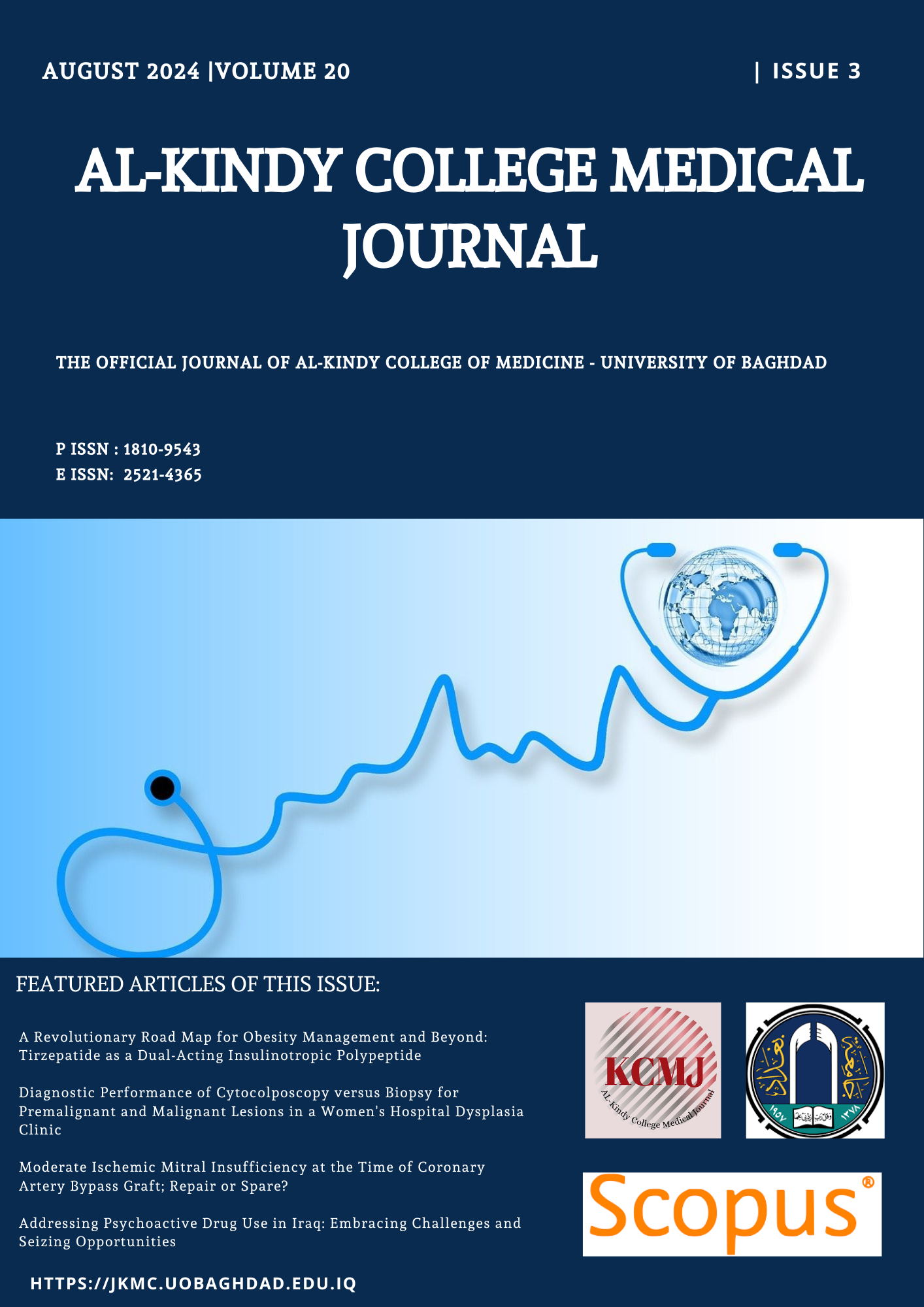Abstract
Background: Fifteen percent of small for gestational age are small as a result of fetal growth restriction, which could be due to maternal, placental or fetal factors. It is an important clinical problem associated with increase perinatal mortality and morbidity. Leptin is a protein that produced by many tissues including the placenta (syncytiotropholoast). Dysregulation of leptin metabolism may be implicated in preeclampsia and IUGR pathogenesis.
Aim of the study: To study the trend of leptin level alteration in maternal serum and cord blood in pregnancies complicated by fetal growth restriction and its relation with fetal outcome.
Methods: An Analytic, cross- sectional study conducted in Al-Elwyia Maternity Teaching Hospital and Alkindy College of Medicine, from October 2009 to June 2010. Sixty seven pregnant women were included and they were divided into two groups: The first group (A) included 34 pregnant women with Intrauterine growth restricted fetuses with and without maternal diseases and the second group (B), included 33 pregnant women with normal pregnancies. Samples from maternal blood and umbilical cord blood were obtained at the time of delivery and leptin level was measured by Enzyme linked immunesorbant assey (ELISA) test.
Results:Umbilical cord leptin level was significantly lower in group A (medain1ng/ml) compared with group B (median10.2ng/ml); P<0.001, and maternal serum leptin was also significantly lower in group A (median19.8ng/ml) compared to control group B (median31.8ng/ml), P 0.042.
Newborn weight for age (Z score) and maternal body mass index were the most important and the only statistically significant determinants of cord blood leptin, while only maternal body mass index had a strong and statistically significant positive association with maternal serum leptin.
In group A, there was a linear correlation between cord blood leptin and placental weight, P<0.001, and a linear correlation between Apgar score at 5minutes and cord blood leptin level, P<0.001.
Conclusion: Women who had growth restricted fetuses had significantly lowered umbilical cord leptin level and maternal serum leptin level than women who had normal fetuses and the outcome of such fetuses could be related to leptin level.
Aim of the study: To study the trend of leptin level alteration in maternal serum and cord blood in pregnancies complicated by fetal growth restriction and its relation with fetal outcome.
Methods: An Analytic, cross- sectional study conducted in Al-Elwyia Maternity Teaching Hospital and Alkindy College of Medicine, from October 2009 to June 2010. Sixty seven pregnant women were included and they were divided into two groups: The first group (A) included 34 pregnant women with Intrauterine growth restricted fetuses with and without maternal diseases and the second group (B), included 33 pregnant women with normal pregnancies. Samples from maternal blood and umbilical cord blood were obtained at the time of delivery and leptin level was measured by Enzyme linked immunesorbant assey (ELISA) test.
Results:Umbilical cord leptin level was significantly lower in group A (medain1ng/ml) compared with group B (median10.2ng/ml); P<0.001, and maternal serum leptin was also significantly lower in group A (median19.8ng/ml) compared to control group B (median31.8ng/ml), P 0.042.
Newborn weight for age (Z score) and maternal body mass index were the most important and the only statistically significant determinants of cord blood leptin, while only maternal body mass index had a strong and statistically significant positive association with maternal serum leptin.
In group A, there was a linear correlation between cord blood leptin and placental weight, P<0.001, and a linear correlation between Apgar score at 5minutes and cord blood leptin level, P<0.001.
Conclusion: Women who had growth restricted fetuses had significantly lowered umbilical cord leptin level and maternal serum leptin level than women who had normal fetuses and the outcome of such fetuses could be related to leptin level.
Keywords
cord blood leptin
Intrauterine growth restriction
maternal serum leptin
